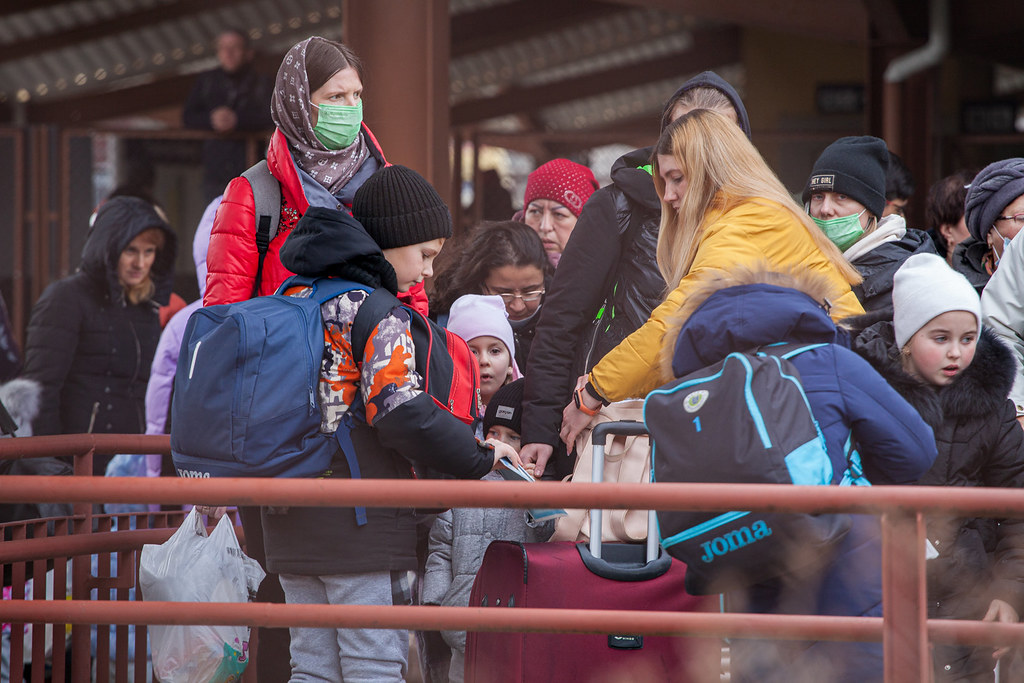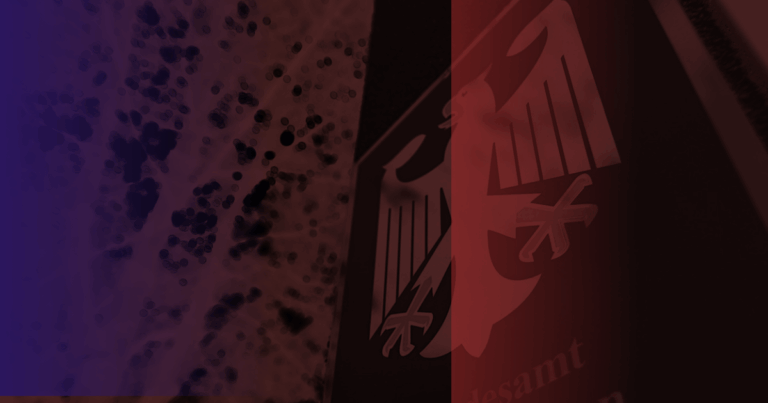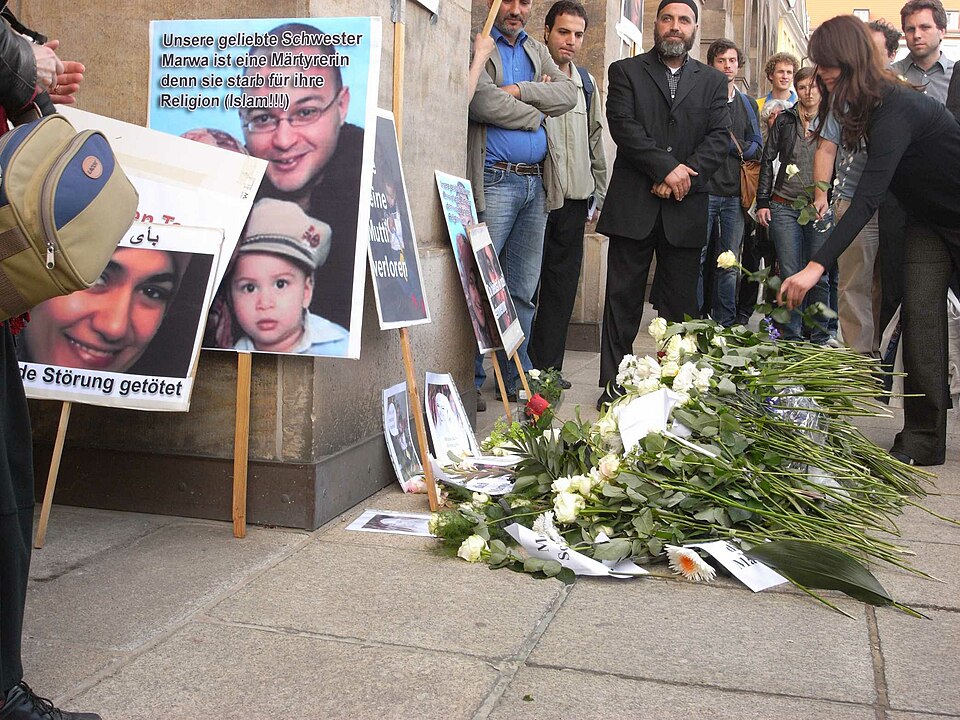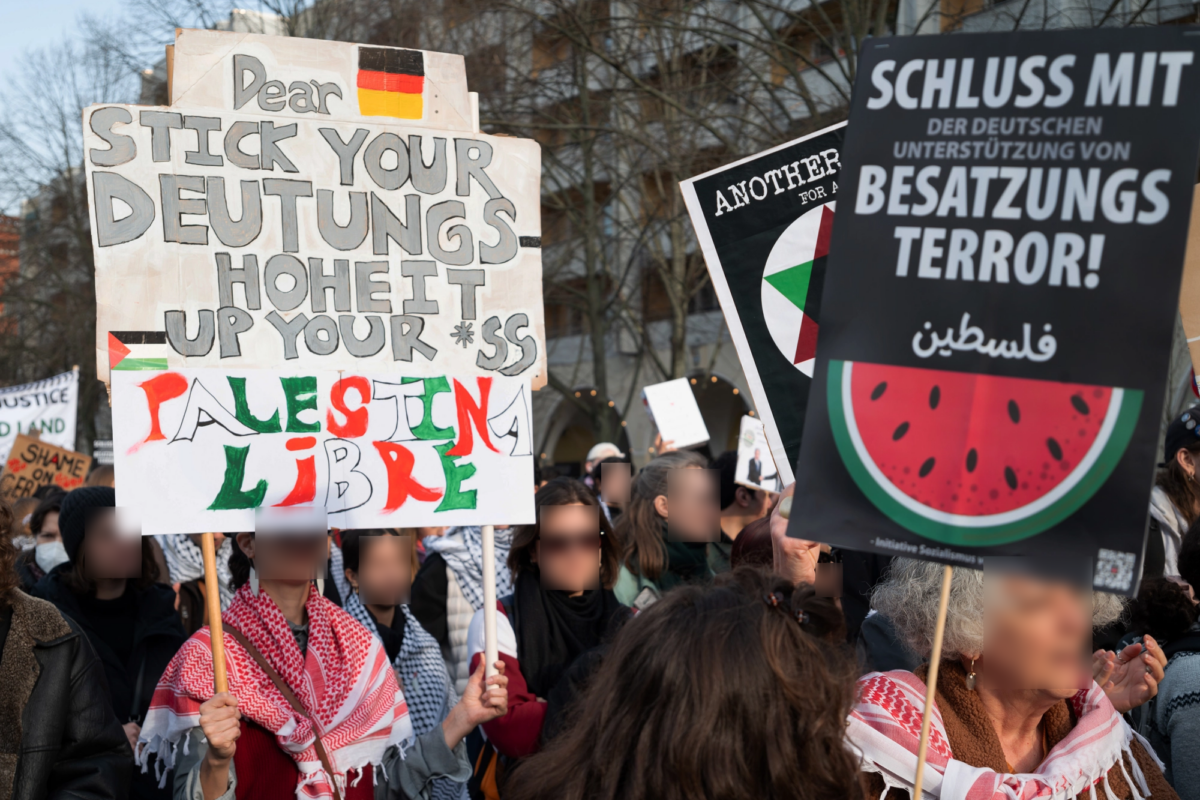Putin’s assault on Ukraine began in late February. Hundreds of thousands of people are leaving the country to save their lives. From politics to civil society, many in Germany have sided with the Ukrainians in solidarity. In Berlin, up to 500,000 people took to the streets to demonstrate against the war, just days after the beginning of the invasion. At first glance, this may look like a sign of solidarity. And of course solidarity with the Ukrainians is very good and necessary. But it is noteworthy how strong the emphasis is in the media, debates, and political discussions, on the fact that the war is taking place in Europe and that the refugees are white Europeans. This reveals the role that racism and Eurocentrism play in how people and politics in the Global North understand the world.
“We woke up today in a different world (…) It is an attack on our peace in Europe,” wrote German Foreign Minister Annalena Baerbock (Greens) on her Instagram page after Putin’s attack. But who is actually meant by this “we”, and in which world exactly have “we” woken up?
For whom is Europe actually peaceful?
Between 1991 and 2001, six major wars were fought in Europe. As a result of these wars, over 150,000 people lost their lives. The war in Bosnia and Herzegovina alone led to the flight and displacement of 2.2 million people. In the 1995 Srebrenica genocide, over 8,000 Bosniaks were murdered, almost exclusively men and boys. The massacre is considered the most serious war crime in Europe since the end of World War II. March 24 marks the anniversary of the 1999 NATO air war against the former Yugoslavia. War has always belonged to Europe. Nevertheless, these wars have never made their way into the memory of the dominant society.
The “lack of peace” is not limited to the Balkan states: Europe has one of the deadliest border regimes in the world. According to the Missing Migrant Project, between 2014 and today, over 23,490 fleeing people have drowned in the Mediterranean alone. Until today, at least 15 people have frozen to death on the Polish-Belarusian border. A year after a fire destroyed the Moria refugee camp, some 3,500 people are still living in a temporary camp on the Greek island of Lesbos. Europe is a nightmare for non-Europeans at its border. But this nightmare is not part of the collective consciousness of Europeans.
That this war is happening “in Europe” seems to be the most important aspect of the current situation for many people in the Global North. “This is not a place like Iraq or Afghanistan. It’s happening in a relatively civilized European country,” said CBS journalist Charlie D’Agata in his coverage of Ukraine. He describes “middle-class people who look like us.”
The talk of “civilized Europe” is deeply rooted in the European-colonial tradition. The so-called civilizing missions served as political justification for military interventions and colonizations intended to “modernize and westernize Indigenous peoples” and “spread higher culture.” These terms often appeared in colonial propaganda to justify the violence of colonial conquest.
Postcolonial critique describes how the Eurocentric gaze creates a universal definition of “us” and the “other.” “We,” that is, Europeans: with white bodies, civilized, with a capitalist economy, and in contrast to the “others”: “backward,” with Black, Indigenous, African, or Asian-Indigenous bodies and a bazaar economy. “Thus, all non-Europeans could be considered pre-European and at the same time on a certain historical chain: from the primitive to the civilized, from the irrational to the rational, from the traditional to the modern, and from the magical-mythical to the scientific. In other words, from non-European/pre-European to something that is Europeanized or modernized over time.” (Aníbal Quijano)
At the same time, what and who belongs to “civilized Europe” and who does not is fragile and changeable – the history of the German rage of conquest and extermination in Eastern Europe especially testifies to this, where millions of Jews fell victim to the Shoah and millions more “Slavic subhumans” were murdered, starved, expelled and exploited as forced laborers.
Whose tears deserve compassion?
The current emphasis on the European-ness, whiteness and supposed Christianity of the people fleeing from Ukraine, who are now selectively and temporarily “Europeanized” by some as part of the current solidarity, shows how the majority of Europe perceives people whose suffering is considered painful and who deserves European solidarity. Conversely, this explains the simultaneous silence about other human catastrophes in other parts of the world and European migration and refugee policies.
Since European integration, the definition of national identity has changed, expanding from nation-state borders to EU borders, thus creating a new European identity. Today, many identify themselves as Europeans. This so-called pan-European nationalism is shared by parties of the bourgeois center as well as some right-wing parties.
At the same time, the continuity of colonial power structures is reflected in current events: African students fleeing war in Ukraine were turned away at Poland’s borders, black people and people of color fleeing war were taken off trains by the federal police. There is talk of “real refugees”, of people from “our cultural circle”. In order to create capacities for newly arriving refugees from Ukraine, the Berlin Senate cleared housing container facilities in Reinickendorf.
But the racist-selective behavior does not end here: Eastern Europeans also often belong to the category of the racialized in Germany. Anti-Slavic racism and anti-Semitism (for example, about 45 percent of Jews in Germany have Ukrainian roots) have a long tradition in Germany and were particularly strengthened by the ideology of the Nazi era.
In recent decades, hard and poorly paid jobs have been reserved for people from Eastern Europe – in the asparagus fields, in the slaughterhouses, in home care; suddenly they are considered white Europeans who must not, under any circumstances, be put in accommodation with refugees from Syria or Afghanistan.
The anti-Slavic racism that justifies the extra exploitation of Eastern Europeans is now also increasingly directed against Russians: Supermarkets are removing Russian products from their shelves, Humboldt University in Berlin is no longer cooperating with its Russian partners. The German Academic Exchange Service is stopping all scholarships to Russia, and people of Russian origin are receiving hate messages.
All of this speaks to the relevance of intersectional and international solidarity that works across national borders and sides with the oppressed and marginalized. This means recognizing the simultaneity and interdependencies of different power relations. Out of nation-state thinking, against war everywhere in the world, on the side of civil society and above all the working class, which is hit hardest by sanctions, against racist-selective “solidarity” and for open borders for all refugees.
This article first appeared in German in Analyse & Kritik. Translation: Dillon Drasner. Reproduced with permisson.




